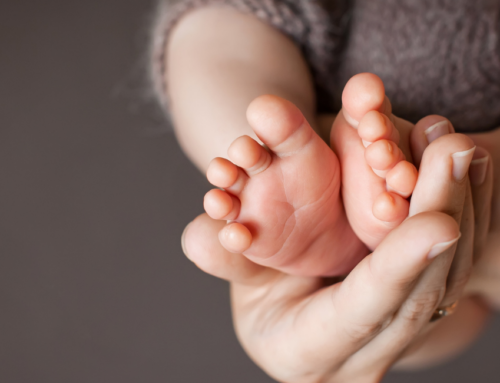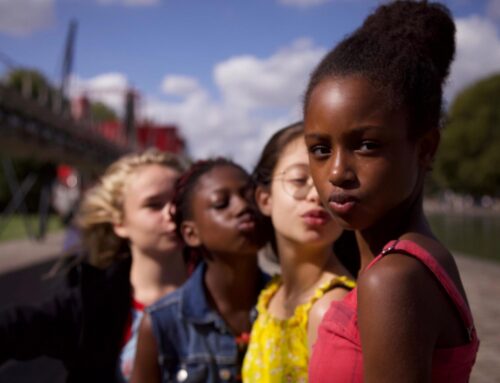 “What are you? A feminist?” My friend’s face was twisted a bit – half in confusion, half in thinly veiled disgust. He was shocked, you see. He had thought that I was a fairly conservative, traditional, “chill” woman. But here I was, standing before him, trying not to bristle too much at the sexist turn of phrase he had used a minute beforehand.
“What are you? A feminist?” My friend’s face was twisted a bit – half in confusion, half in thinly veiled disgust. He was shocked, you see. He had thought that I was a fairly conservative, traditional, “chill” woman. But here I was, standing before him, trying not to bristle too much at the sexist turn of phrase he had used a minute beforehand.
“No,” I replied. “I’m not a feminist.”
At least I didn’t think so. I checked the top of my head; no atrociously, bright pink hat in the shape of genitalia. Check. I examined my chest; yes, still wearing a bra. As much as I hate wearing bras, I’d never burned any of mine and I still wear them… at least while out in public. Check. I verified my actions over the past few days; I let that chivalrous gentlemen open the door for me and even thanked him, and I had allowed another man to pay for my dinner on a date. Check.
So, no. I wasn’t lying. I was not a feminist.
However, after that conversation, I started to wonder: Maybe I am a feminist? I do bristle a lot and that’s something we seem to have in common. But why?
Why did I bristle when my birth doula clients were not given any paid maternity leave? Why did I bristle when people snidely responded to the fact that I have a liberal arts degree by calling it an “Mrs. Degree?” They never commented that my male friends were earning their “Mr. Degree.” Why did I bristle when women were pushed aside in films, reduced to mere eye candy? Why had I bristled when I was called “bossy” in high school, for taking on leadership roles? My guy friends were never called “bossy.” Why did I bristle and shrivel up inside when I thought of discrimination, FGM, pornography, domestic violence, sexual trafficking, and rape?
So, I began to search. I read articles, followed feminists on social media, talked to women I respected, and reexamined my own thoughts and emotions. However, the more I searched, the less I found in common between myself and these feminists – especially the more radical ones. Although I shared their outrage at the violence and injustice against women, I could not condone their theories of how to combat it. I especially disagreed on issues of contraception and abortion because I held that we must embrace the responsibility as well as the freedom of our sexuality. Also, I believed in a higher power who gave definite, inherent natures to men and women, natures which were compatible and synergistic.
So, where were the other feminists like me? Where were these feminists, who were passionate about the rights of women but also respected the rights of unborn women? Where were the feminists who protested against injustice while remaining calm, logical, and open-minded, instead of resorting to rabid vulgarity in the streets? Where were the feminists who believed that intricate design of a woman’s fertility is not something to be overthrown by birth control, but to be lived out in harmony? Where were the feminists who believed that men and woman are uniquely different and yet equal and compatible? Where were the feminists who were CEOs, intellectuals, and, and senators, but also loving, feminine wives and mothers? Where were these feminists and what did they call themselves?
Then, in the midst of this questioning, I found New Feminism.
I had heard of New Feminism before. At the time, though, it just blended in with the other feminisms out there: first, second, and third wave feminism, mainstream feminism, radical feminism, cultural feminism, etc. However, once I took a closer look, I realized it was fundamentally different. New Feminism is based upon a Natural Law ethic, “a way of life which is given to us by the Creator and is evident through the natural order of creation and human reason.”
Because of this fundamental philosophy, New Feminists believe:
- In the inherent dignity of every human being beginning with natural conception and ending with natural death;
- That every life is unique and holds potential; every life deserves celebration regardless of the circumstances of conception, status, or health;
- That life naturally begins at conception within women and requires a “yes” on the part of women to be realized. Therefore, women are at the heart of the Culture of Life;
- In holistic, women-centered solutions to the many challenges women face in our society today;
- In each woman’s innate ability to nourish life, either physically or spiritually;
- That fertility and childbirth are natural, healthy biological processes and that knowledge of them empowers women;
- That abortion and contraception interrupt natural, healthy biological processes;
- That women should not feel forced to choose between their children and their education and/or career; and
- That our bodies were created beautifully and deserve respect, understanding, and care.
All this, I also believed. I had found a philosophy of feminism I could accepted in its entirety. I had found a community of feminism that I could wholeheartedly embrace. I had found a banner behind which I could fight.
I had found New Feminism.
So, the next time someone asks if I’m a feminist, I will proudly say, “Yes, I am. I’m a New Feminist.”





Leave A Comment